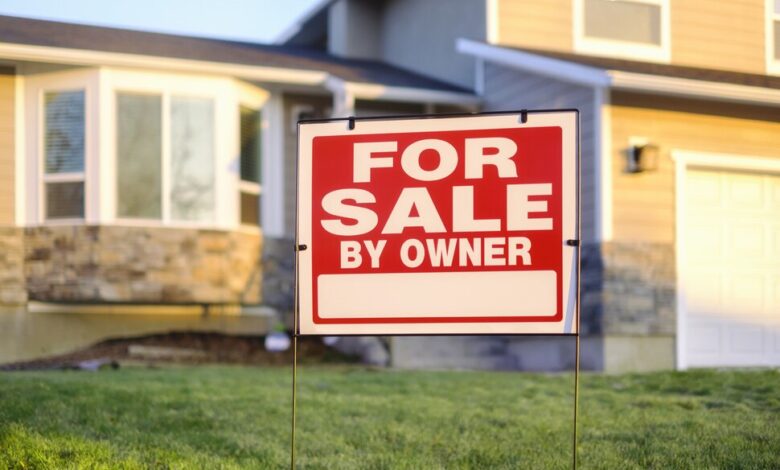
What Paperwork Do I Need to Sell My House Myself? A DIY Seller’s Guide
Selling your home by yourself, known as For Sale By Owner (FSBO), can save you from paying hefty realtor commissions, but it demands thorough preparation, especially regarding paperwork. This guide details the essential documents you’ll need to ensure a smooth and legally compliant transaction.
Preparing to Sell

Before you list your home, it’s vital to understand the legal and financial implications involved. We’ll start by discussing the initial documents you need to get your house ready for sale.
Property Documents
The first step is gathering all relevant property documents, which include the title deed, property tax records, and, if applicable, Homeowner’s Association (HOA) documents. The title deed is crucial as it proves your legal ownership and is necessary for transferring property to the buyer. Property tax records, showing that taxes are paid and up-to-date, inform buyers about the property’s annual tax obligations. For those in an HOA, providing the covenants, conditions, and restrictions, along with any fees, outlines community rules and what the new owner can expect in terms of obligations and restrictions. For more insights and guidance on handling these documents and other aspects of selling your home, you might find it helpful to navigate the process smoothly through resources like https://gordonbuyshomes.com.
Disclosure Documents
Transparency with potential buyers about the condition and history of your property is essential and achieved through disclosure documents. The property disclosure form, required in most states, details the condition of the property’s various systems, known defects, and past repairs. In areas prone to natural hazards, a natural hazard disclosure informs the buyer of potential risks like floods, earthquakes, or wildfires. Additionally, for homes built before 1978, a lead-based paint disclosure is federally mandated to inform buyers about the presence of lead-based paint and associated hazards.
Marketing Your Home

With your documents organized, the next step is to attract potential buyers by effectively marketing your property.
Listing Agreement
Though typically used by real estate agents, creating a simplified listing agreement as a DIY seller helps organize your sale terms. This might include the sale price, inclusions, and any sale conditions. Additionally, while the Multiple Listing Service (MLS) is traditionally an agent’s tool, FSBO sellers can pay a flat fee to list their property, which requires detailed information for accurate representation.
Marketing Materials
High-quality photos and videos, along with compelling descriptions of your home, are crucial for drawing attention to your listing. These materials should highlight your home’s best features and unique benefits, providing a strong first impression to potential buyers.
Closing the Sale

The final stage involves legal documents and financial transactions that finalize the sale.
Sales Contract
The sales contract, including the purchase agreement and any contingency releases, is central to the transaction. It outlines the agreed terms, such as price, closing date, and contingencies, ensuring a clear understanding between buyer and seller. Contingency releases are needed once conditions like home inspections are satisfied, moving the sale forward.
Closing Documents
Closing involves several key documents, including the closing statement, deed, and a final walk-through checklist. The closing statement itemizes all financial transactions and must be agreed upon by both parties. The deed, signed and notarized by the seller, legally transfers ownership and must be filed with the county recorder. A final walk-through allows the buyer to verify the property’s condition before the sale concludes, with a checklist to document this process.
Evaluating Your Home’s Value

Determining the right price for your home is a critical step in the FSBO process. This involves conducting market research to understand current trends and comparing your property to similar homes in the area. Consider factors like location, size, amenities, and condition of your home. An accurate valuation not only attracts serious buyers but also helps in avoiding prolonged market listings. For a more precise estimate, consider investing in a professional appraisal. This upfront cost can pay off by providing a solid basis for your asking price, ensuring it reflects your home’s true market value.
Legal Considerations and Compliance
Navigating the legal landscape is crucial when selling your home independently. Each state has specific laws regarding real estate transactions, including required disclosures, contract formats, and closing procedures. Familiarize yourself with these regulations to avoid legal pitfalls. It’s also wise to consult a real estate attorney who can review your paperwork and ensure compliance. This step can prevent potential legal issues and provide clarity on complex legal language, making the selling process smoother and more secure.
Marketing Strategies for Maximum Exposure

Effective marketing goes beyond just listing your home; it involves strategic efforts to reach a wide audience. Utilize online platforms, social media, and real estate websites to showcase your property. Crafting a compelling story about your home can resonate with potential buyers, highlighting unique features and the lifestyle it offers. Consider hosting open houses to give buyers a firsthand experience of the property. These strategies can increase visibility, attract more potential buyers, and possibly expedite the sale.
Negotiation Tactics for FSBO Sellers
As a DIY seller, honing your negotiation skills is essential. When you receive offers, evaluate them carefully, considering both the price and the buyer’s conditions. Be prepared to engage in back-and-forth negotiations to reach a mutually beneficial agreement. It’s important to remain flexible yet firm on your bottom line, understanding when to make concessions and when to stand your ground. Effective negotiation can lead to a successful
sale while ensuring your interests are protected.
After the Sale: Post-Closing Responsibilities

The sale of your home doesn’t end at closing. There are post-sale responsibilities to manage, ensuring a complete and smooth transition. These include transferring utilities, fulfilling any agreed-upon post-closing agreements, and providing necessary documents for tax purposes. It’s also courteous to leave behind any manuals or warranties for appliances and systems that will remain in the house. Ensuring all these details are handled promptly can prevent post-sale complications and help conclude your home-selling journey on a positive note.
Conclusion
Selling your home independently requires careful attention to legal and procedural details. By preparing the necessary paperwork, you can navigate the FSBO process confidently. Consulting with a real estate attorney or professional can further ensure that all documents comply with your state’s requirements, providing peace of mind as you finalize your home sale.




